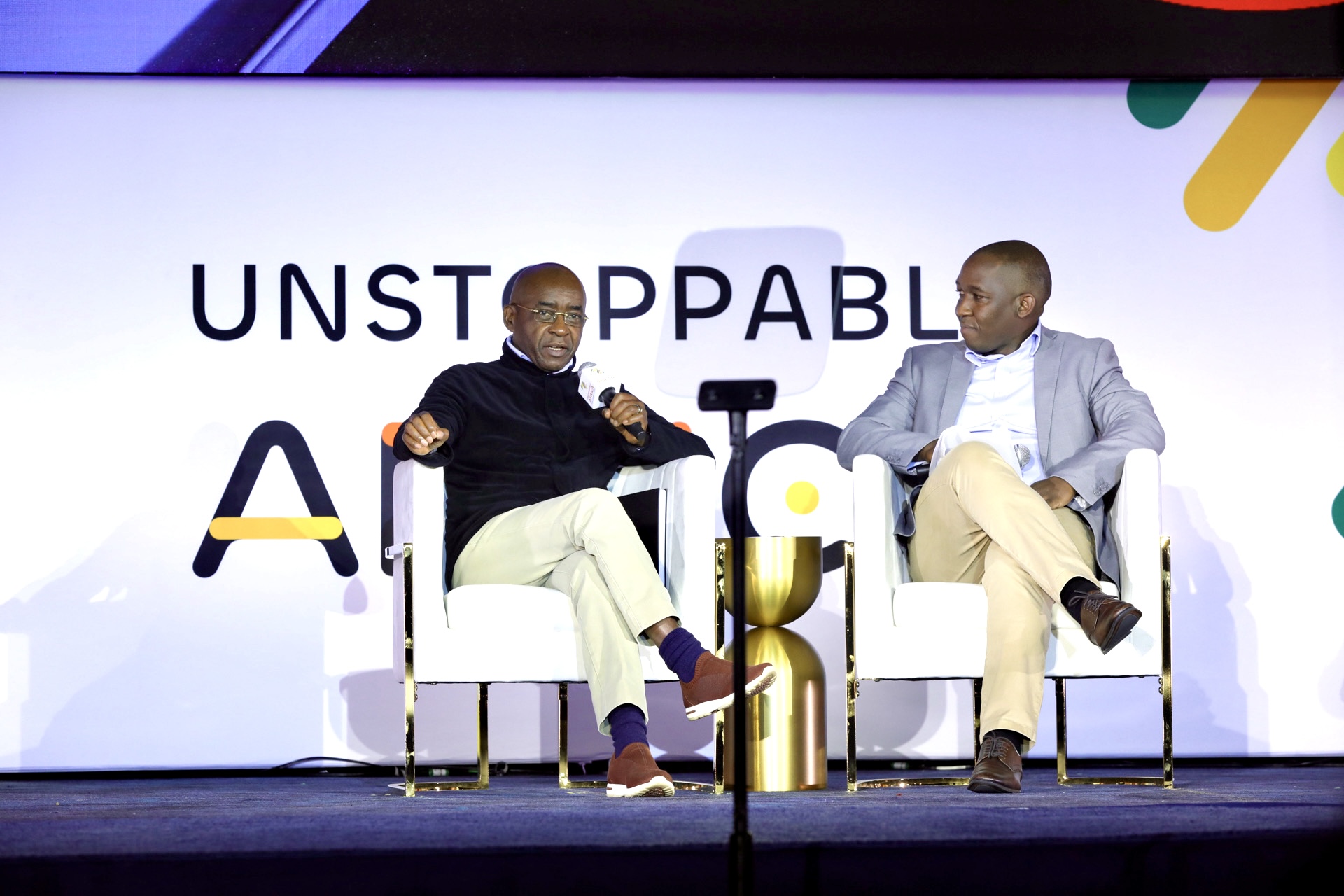Technology
Mobile penetration in Africa reaches 80%

LAGOS, Nigeria -There are 960 million mobile subscriptions across Africa – an 80% penetration rate among the continent’s population. Internet penetration is at 18% with 216 million internet users, according to the latest Jumia mobile trend report for Africa.
The 2017 edition of the African Mobile Trends Paper is the third white paper presentation from Jumia delving into mobile trends across Africa and specifically Nigeria. The study takes a look at the how the market has democratised mobile internet use, the consumer behaviours driving increased smartphone adoption and the role of mobile brands, mobile operators and m-commerce in creating a synergy of an enhanced customer experience.
This year’s Mobile Africa Study was carried out in 15 African countries which generate more than 80% of Africa’s GDP: Algeria, Nigeria, Morocco, Tunisia, Egypt, Mozambique, Ghana, Ivory Coast, Cameroon, Rwanda, Uganda, Tanzania, Kenya and Senegal.
Africa mobile, internet penetration
There are 960 million mobile subscriptions across Africa – an 80% penetration rate among the continent’s population. Internet penetration is at 18% with 216 million internet users. While Nigeria’s internet penetration is much higher at 53%, its mobile subscription is similar to Africa’s at 81% penetration (150 million mobile subscriptions).
Like last year, it is presumed that the unique subscription rate is lower as each subscriber owns an average of two sim cards.
Nigeria: a mobile first nation
As predicted in 2016, Nigeria continues its trajectory down the increasingly widening highway that is the mobile internet. With a current internet penetration rate of 53% (97.2 million users) Nigeria has a much higher penetration rate than across Africa (18%).
About 71% of website visitors on Jumia use their mobile phones. This is in comparison to 53% of Jumia African customers. One of the main vehicles of this mobile trajectory is the increasing adoption of the smartphone device by consumers.
As predicted in the Jumia 2016 report, smartphone adoption continues to rise in Nigeria. The mobile phone category continues to be the most popular among Nigerian shoppers on Jumia, both in terms of the number of items sold, and in terms of revenue generated. The sales of smartphones jumped up by 394% between 2014 and 2016, mostly driven by an increasing range of smartphones price points.
eCommerce and the diversification of smartphones
The average price for a smartphone on Jumia is $117, down from $216 in 2014. Correlating with this is a drop in the share of sales of basic feature phones from 6% in 2015 to 4% in 2016, even as the share of smartphones on the website increased.
In 2016 Chinese mobile brands held dominance and played a major role in introducing smartphones with lower price points. Infinix, Innjoo, Tecno, Samsung and Yezz are the top five smartphone brands in terms of sales on Jumia.
Infinix continues to be Africa’s top smartphone brand across Jumia’s 15 markets. One of their entry level smartphones, the Infinix Hot4Lite was one of the best-selling phones across several African markets including Nigeria.
High data costs and lower performance smartphones
Currently, one out of two mobile visitors in Nigeria are coming from the Jumia mobile app
The increased access and affordability of low specification smartphones has also revealed a need for the mobile ecosystem to respond with data-efficient browsers and mobile apps that are optimised for performance and an easy user experience.
Looking at the mobile internet browsers that customers use to access Jumia, 50% of customers in Africa come onto Jumia’s mobile site with Google Chrome. In Nigeria that number is just 28%. Instead, the Opera mini browser is much more popular, with 41% of the mobile traffic to Jumia Nigeria coming from Opera mini.
One reason for this could be that countries with higher levels of income have been found to have more users accessing the internet with heavier browsers like chrome – which typically have higher system requirements.
In 2016 Chinese mobile brands held dominance and played a major role in introducing smartphones with lower price points.
Opera mini is a lighter browser in terms of data usage and is popular among new mobile internet users who have lower incomes and can’t afford costly internet data packs. A recent report from Opera determined the savings on mobile data costs for Opera mini users in Nigeria has amounted to about $198 million (N39.5 billion) over a 10-month period, due to its data compression technology. This is a clear example of the ripple effect that customer enjoy when a slight change is introduced by one of the digital ecosystem players.
For Jumia, an immediate key priority is to enhance the desktop user experience (which accounts for almost 30% of Jumia’s traffic and almost 40% of orders placed), by delivering a progressive web application that bridges the gap between conventional web pages and native mobile applications. This is to give customers a faster web and desktop experience that includes functionalities like push notifications and the ability to browse while offline.
mCommerce – beyond browsing on mobile
The trend since 2013 was for people to use their mobile phones to browse and look up products and then purchase them on their desktop. Now customers are checking out and paying for orders from the mobile app or the mobile friendly version of the website. This is a trend we foresee growing in the future based on the current figures.
Mobile customers (both those who use the Jumia app and those who browse from mobile browsers) account for 63% of all orders on Jumia Nigeria. Across the 15 markets where the study was carried out, that figure is at 47%.
With a whopping 2,236,000 Jumia app downloads from 2015 to 2016 (a 128% increase), Jumia app users form a significant portion of the mobile traffic on Jumia Nigeria. Currently, one out of two mobile visitors in Nigeria are coming from the Jumia mobile app.
The highest conversion rate recorded in the last year has been on the app. That is the number of completed orders in relation to the number of visitors is higher on the mobile app than on the mobile or desktop versions of the website. This could be driven by the fact that the app is exclusively designed for mobile and therefore has a faster and better shopping experience for users.
Hence, the priority for mcommerce for the next few years is to continually democratise the usage of the app and incentivise an increase in usage by maintaining a better browsing experience and lower data consumption.
Strategic collaborations
Strategic collaborations with phone operators and data providers are also a key factor for enhancing customer experience. For example, the zero data usage (free browsing) offered to MTN sim card owners when they browse on both the Jumia mobile site and the app will remain a key feature and value-added service for Jumia customers.
Nigeria’s mobile trends for 2017 are positive with a steady growth of smartphones adoption and diversity. These increased offerings deliver more value for customers and cheaper access to internet connectivity.
As smartphone brands and mobile operators continue to invest in research and development and innovative data packages, and ecommerce providers invest in customer service, logistics and marketing over the next few years, Jumia’s outlook is for an even more synergised digital ecosystem over the next few years.
Source:bizcommunity
Technology
Unstoppable Africa 2025: Africa’s AI Ambitions and Digital Future Go Global

Major projects and initiatives that are set to position Africa at the heart of global innovation, notably the expansion of the continent’s AI infrastructure, were announced today at Unstoppable Africa 2025 in New York as CEOs convened to discuss Africa’s place in the global economy. This marks a significant step in enabling the continent’s stakeholders to develop local AI solutions designed to address some of Africa’s most pressing challenges.
Zimbabwean billionaire, Founder and Executive Chairman of Econet Global and Cassava Technologies, Strive Masiyiwa, announced that steps are underway to establish Africa’s first network of AI factories. Powered by NVIDIA GPUs, the facilities will be completed by the end of 2026, setting the stage for homegrown innovation and accelerating Africa’s participation in the global AI economy.
Another announcement came from Meta, presented by Kojo Boakye,Vice President, Public Policy Director for Africa, Middle East & Turkey. The company signalled upcoming investment opportunities in Africa’s digital ecosystem, highlighting its confidence in the continent’s growing tech and AI potential.
These initiatives reflect a shift toward locally led solutions and long-term planning, with a focus on robust systems, adoption of advanced technologies, and capital investment to drive regional integration and global competitiveness.
The second day of Unstoppable Africa 2025, flagship event of the Global Africa Business Initiative (GABI), united business leaders, African heads of state, global investors, and international institutions to accelerate the continent’s economic transformation. New commitments in infrastructure, advanced technologies and investment highlighted growing confidence in Africa’s private sector.
In the financial services sector, the Africa Finance Corporation (AFC) in collaboration with African Pension and Social Security Institutions launched the ‘Africa Savings for Growth’ initiative to explore ways to channel African institutional savings into longer-term investments that support inclusive growth. The continent-wide initiative builds on AFC’s 2025 analysis identifying at least $1.17 trillion in institutional assets across Africa, much of it still allocated to short-term, low-yield instruments.
The Global Africa Business Initiative launched two new GABI Action Pathways focused on digital transformation and healthcare aiming to connect businesses, governments, and innovators working in sectors critical to Africa’s competitiveness and resilience.
The Healthcare Action Pathway aims to improve access to medical services through digital tools, build stronger regional supply chains, attract investment, and support the growth of Africa’s healthcare workforce. The Digital Transformation Action Pathway focuses on upgrading government services, expanding internet access and digital infrastructure, training people for future jobs, helping small businesses with tech and funding, and promoting responsible use of AI and data.
Discussions on Day Two focused on new partnerships, Africa’s digital growth, and the continent’s thriving sports and creative industries, including music and fashion.
The forum concluded by highlighting Ava DuVernay, acclaimed director, screenwriter, producer, and founder of ARRAY; 15 year-old Ellyanne Wanjiku Chlystun-Githae, Climate & Health Champion at Seeds for Leadership; Mpumelelo Tevin Mhlongo, Paralympic champion and triple world record holder; Marcus Samuelsson, chef, restaurateur, and author; and international singer-songwriter, Tiwa Savage, who also performed at the end of the event. Their inspiring contributions echoed the forum’s central message of empowerment, innovation, and sustainable progress across the continent.
Closing the forum, Deputy Secretary-General of the United Nations, Amina J. Mohammed said, “When people say Africa is resilient, they’ve got a different definition to resilience than we have. Africa’s resilience is about how we build on what we have and how we strengthen our markets, our economies and our democracies and I believe that the values and principles that we all hold are important. Unstoppable Africa is a space to remind ourselves that this is who we are, it is our narrative, on our terms that we go forth.”
Unstoppable Africa is the leading African business forum held outside the continent. Hosted by United Nations Secretary General António Guterres and H.E. Mahmoud Ali Youssouf, Chairperson of the African Union, the event took place just ahead of the 80th session of the UN General Assembly in New York. Unstoppable Africa aims to accelerate the continent’s economic transformation and empower Africa to take a leading role in shaping the markets of the future.
Technology
Kaspersky warns travelers: AI-powered attacks are targeting hotel guests

Between June and August 2025, Kaspersky’s Global Research and Analysis Team (GReAT) discovered a new wave of cyberattacks by a threat group called RevengeHotels, which targets hotels to gain access to guests’ payment information. The group has been operating since 2015 and has since upgraded its methods. The threat actor is now using Artificial Intelligence (AI) to make their attacks more effective and reach additional regions. Analysis shows that many of the new malicious programs used in these attacks contain code likely generated with AI, making them more sophisticated and harder to detect.
While hotels in Brazil have been the main target to date, such cyberattacks have also been reported in other countries around the globe. And considering that countries in Africa, including South Africa and Kenya, are popular tourist destinations, and Nigeria a popular business travel destination, it is important to consider that no country or hotel is immune to falling victim.
How the attacks work
The threat actor sends phishing emails directly to hotel staff, often disguised as requests for reservation or job applications. Once a hotel employee interacts with these emails, malware called VenomRAT is installed on the hotel’s systems, giving attackers access to guests’ payment data and other sensitive information. The emails often look convincing, coming from legitimate-looking websites.
“Сybercriminals are increasingly using AI to create new tools and make their attacks more effective. This means that even familiar schemes, like phishing emails, are becoming harder to spot for a common user. For hotel guests, this translates into higher risks of card and personal data theft, even when you trust well-known hotels,” comments Lisandro Ubiedo, expert at Kaspersky’s Global Research and Analysis Team.
To stay safe, Kaspersky recommends:
- Even if an email seems friendly, treat links and attachments with care. To protect your company, use solutions from the Kaspersky Next product line that provide real-time protection, threat visibility, investigation and response capabilities of EDR and XDR for organisations of any size and in any industry.
- Cybercriminals often distribute fake email messages mimicking email notifications from an online store or a bank, luring a user to click on a malicious link and distribute malware. If attackers are specifically targeting your organisation, the email text may be more customised, mimicking services or scenarios familiar to your company. With that in mind, fine-tune your antispam settings and never open attachments sent by an unknown sender.
- Try not to open unexpected files sent by you massively. They may be ransomware or even spyware, even attachments from official-looking emails.
Technology
Nigerian Risk Expert Unveils NaijaShield™, Africa’s First AI-Powered Stress Testing Engine

Nigerian-born financial risk specialist Oyindamola Ogunruku, currently a senior market risk analyst at Goldman Sachs, has developed a groundbreaking invention called NaijaShield™, an artificial intelligence-driven stress testing engine designed to transform how banks and regulators in frontier economies anticipate and manage financial shocks.
Traditional stress testing models were built for the stable conditions of developed markets and have proven inadequate for economies like Nigeria, where inflation, volatile exchange rates, and abrupt policy shifts create unique vulnerabilities. NaijaShield™ tackles this problem by combining machine learning, regulatory alignment, and predictive analytics to create a dynamic system that can simulate real-world crises in real time. The invention uses a risk detection engine to process market data, a simulator to model events such as currency crashes or oil price slumps, a scorecard generator to highlight exposures, and a regulatory module that syncs results with Central Bank of Nigeria requirements. Its final layer is a decision dashboard that gives auditors, executives, and compliance teams actionable insights at a glance.
Ogunruku describes NaijaShield™ as an intelligent early warning system that can help African banks strengthen resilience, prevent systemic risks, and build investor confidence. She has urged Nigerian regulators to establish sandbox environments where tools like NaijaShield™ can be tested safely before full deployment, noting that its impact could extend beyond Nigeria to other frontier markets with similar instability.
Her career reflects the combination of local insight and global expertise that makes this innovation possible. From designing adaptive risk scorecards at fintech firms in Lagos to managing market risk oversight at Goldman Sachs in the United States, she has consistently demonstrated an ability to bridge advanced analytics with real-world banking challenges. With peer-reviewed publications on AI in financial stress testing, anomaly detection, and green fintech, the unveiling of NaijaShield™ underscores her standing as a pioneer at the intersection of artificial intelligence, finance, and regulatory innovation.
“The future of financial oversight is not just digital — it is intelligent,” Ogunruku said. “NaijaShield™ proves that frontier markets like Nigeria can lead in developing the tools that make global finance safer.”
-

 Oil and Gas2 days ago
Oil and Gas2 days agoTotalEnergies, Chevron Push for Faster Permits, Better Seismic Data in Africa
-

 Afripreneur13 hours ago
Afripreneur13 hours agoRevolutionizing Cross-Border Payments in Africa: An Exclusive Interview with Onyinye Olisah
-

 Energy2 days ago
Energy2 days agoUnited States (U.S.) Political Will, African Reforms Signal New Era for Energy Investment





